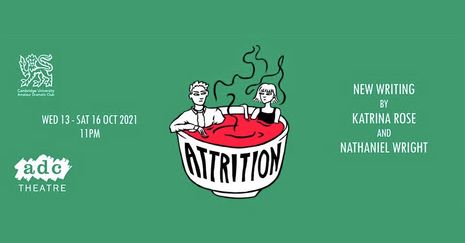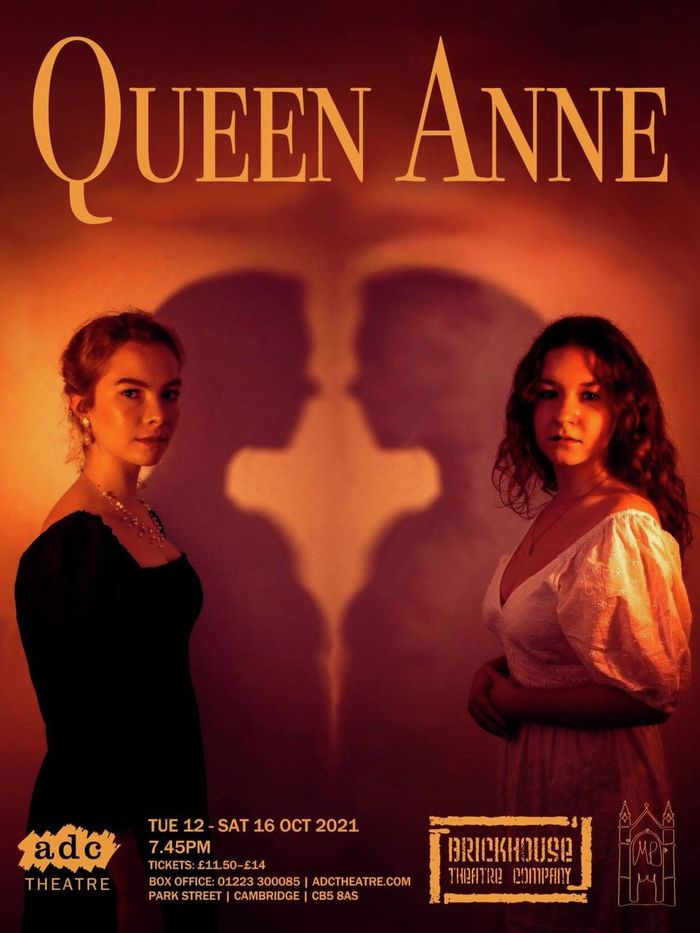Attrition has heart and a strong political message
Theatre Editor Stanley Lawson reviews this week’s ADC lateshow, the student written ‘Attrition’

Content Note: This review contains extensive discussion of ableism
The meaning of the title becomes apparent fairly early in Attrition but does not become poignant until well into the play. This speaks to one of Attrition’s greatest strengths; the plot - the slow and steady waring down of a disabled person by their well-meaning but oblivious flatmate- which is driven by a powerful political message about the voice and lived experience of disabled people. Some great political theatre with a powerful message often feels underwhelming because of a lack of heart to the characters themselves, a pitfall Attrition avoided. It did this principally by investing practically the whole of the run time in building the relationship between the two principal characters – Mike (Nathaniel Wright) and Jaz (Chole Stark). The strain of maintaining a dynamism on a stage as large as the ADC’s for more than an hour in what was almost a two-hander showed at times, but this was less do with the performance of the actors and more to do with some of the stylistic choices of the playwrights. This was particularly evident in the way the comedy was written: at times the audience was giggling along to moments which were richly deserved – they had excellent comic set up and Wright and Stark played them well, but at others it felt like there was an attempt in the writing to sustain the comedy, or at least a jovial light-hearted atmosphere, through the mundane which at times felt slightly forced. However, the genuinely funny moments still worked wonderfully.
“at times the audience was giggling along to moments which were richly deserved”
The real technical strength of the writing was in the structure of the show itself, building the realtionship between the two with a long series of short vignettes. The vignette structure itself was a huge strength, but was offset by the decision to break them up by a blackout each time. The reasoning behind the this eludes me, and it was exasperating - its effect was to break every one of the short scenes, inhibiting the narrative flow and the connection between character, character and audience. Liberal use of blackouts are, I concede, often a matter of taste, but excessive use of them in this particular context, where the use of short scenes to build an emotionally intimate realtionship had excellent potential, undermined what I thought the playwrights and director (Joe Folley) were trying to achieve in the relationship between the two characters.
The heart the play had I mentioned above was thanks in no small part to the acting of Wright and Stark, who pushed through patches of less effective dialogue and soared when the writers (Wright himself and Katrina Rose) gave them good lines to work with. This, as well as a praiseworthy ending scene, which was also glimpsed at the beginning, brought home the powerful political message driving the emotional stakes of the play – that the voice of disabled people must be heard, listened to and lead in conversations about disability, and that well intentioned able bodied people could do to not just believe this maxim but practice it in their day to day lives. There was a wonderful skewering of the kind of person who equates their (equally valid) oppression to the challenges faced by disabled people and thus drowning out the voices that need to lead the discussion. For all its technical and stylistic foibles in staging and script, Attrition is an impactful politically play with a lot of heart.
 News / Cambridge academics stand out in King’s 2026 Honours List2 January 2026
News / Cambridge academics stand out in King’s 2026 Honours List2 January 2026 Interviews / You don’t need to peak at Cambridge, says Robin Harding31 December 2025
Interviews / You don’t need to peak at Cambridge, says Robin Harding31 December 2025 Comment / What happened to men at Cambridge?31 December 2025
Comment / What happened to men at Cambridge?31 December 2025 News / Varsity’s biggest stories of 202531 December 2025
News / Varsity’s biggest stories of 202531 December 2025 Features / “It’s a momentary expression of rage”: reforming democracy from Cambridge4 January 2026
Features / “It’s a momentary expression of rage”: reforming democracy from Cambridge4 January 2026










